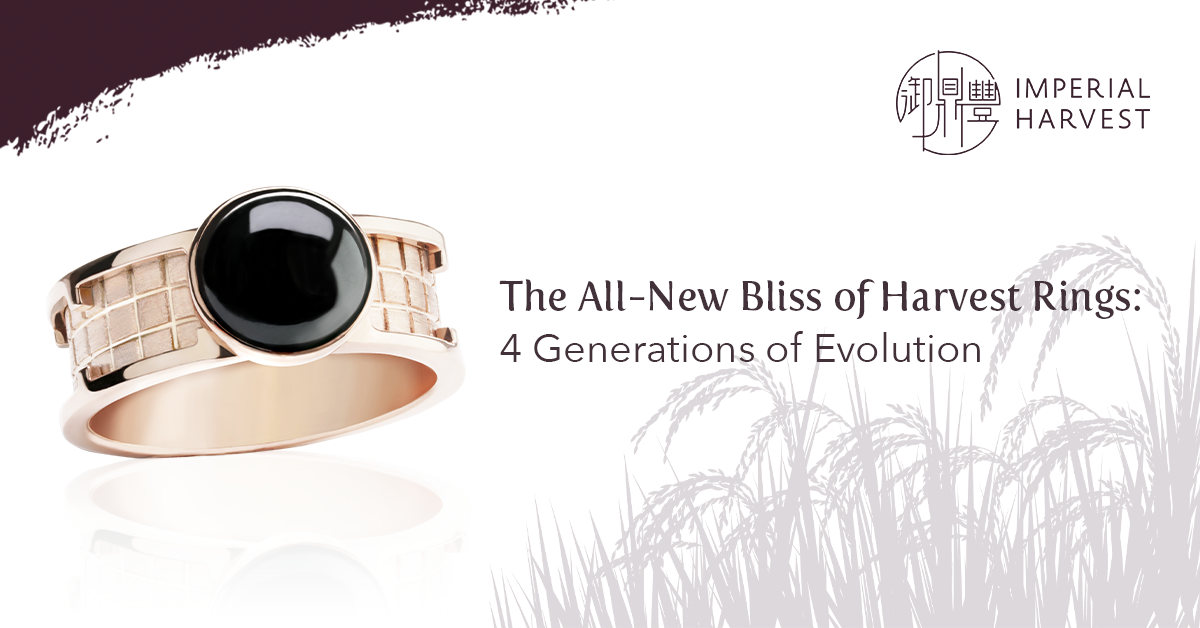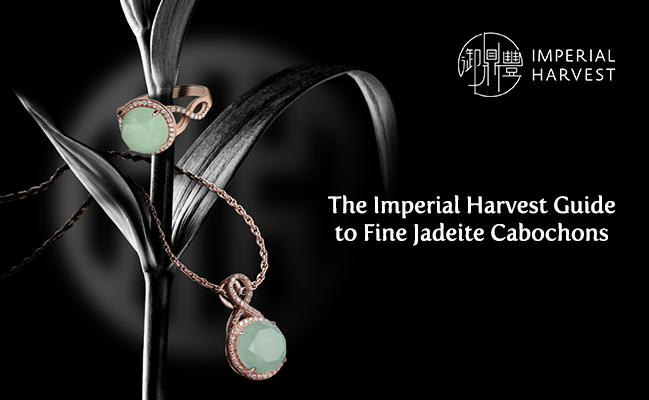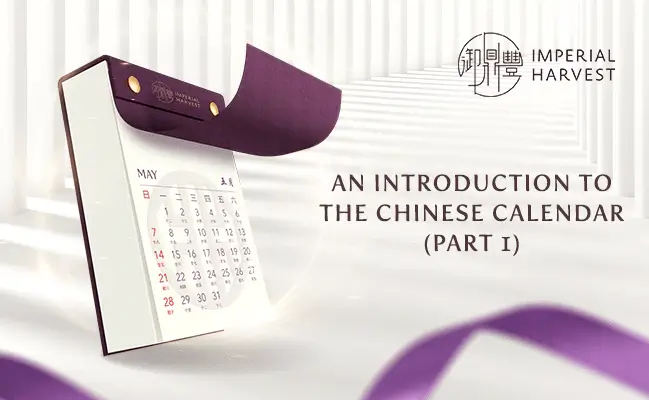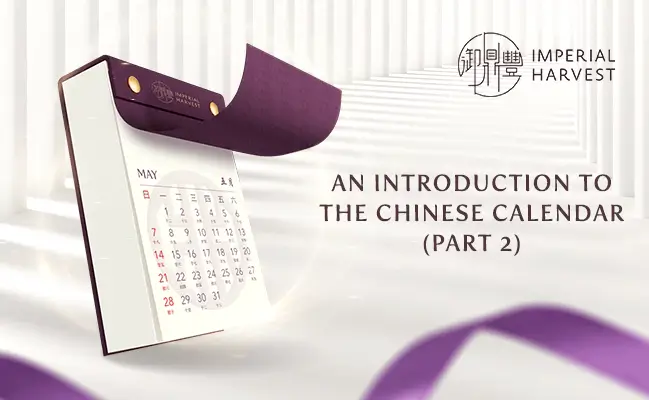

Posted by Imperial Harvest on 28 July 2023
Imperial Harvest Celebrates the Bountiful Harvest of Liqiu (立秋)
Estimated Reading Time: 4 mins
As the 13th of the 24 solar terms, Liqiu (立秋) ushers in the beginning of the autumn season, denoting the arrival of cooler temperatures and a new chapter in the year. It begins when the sun reaches the celestial longitude of 135° and ends when it reaches the longitude of 150°.
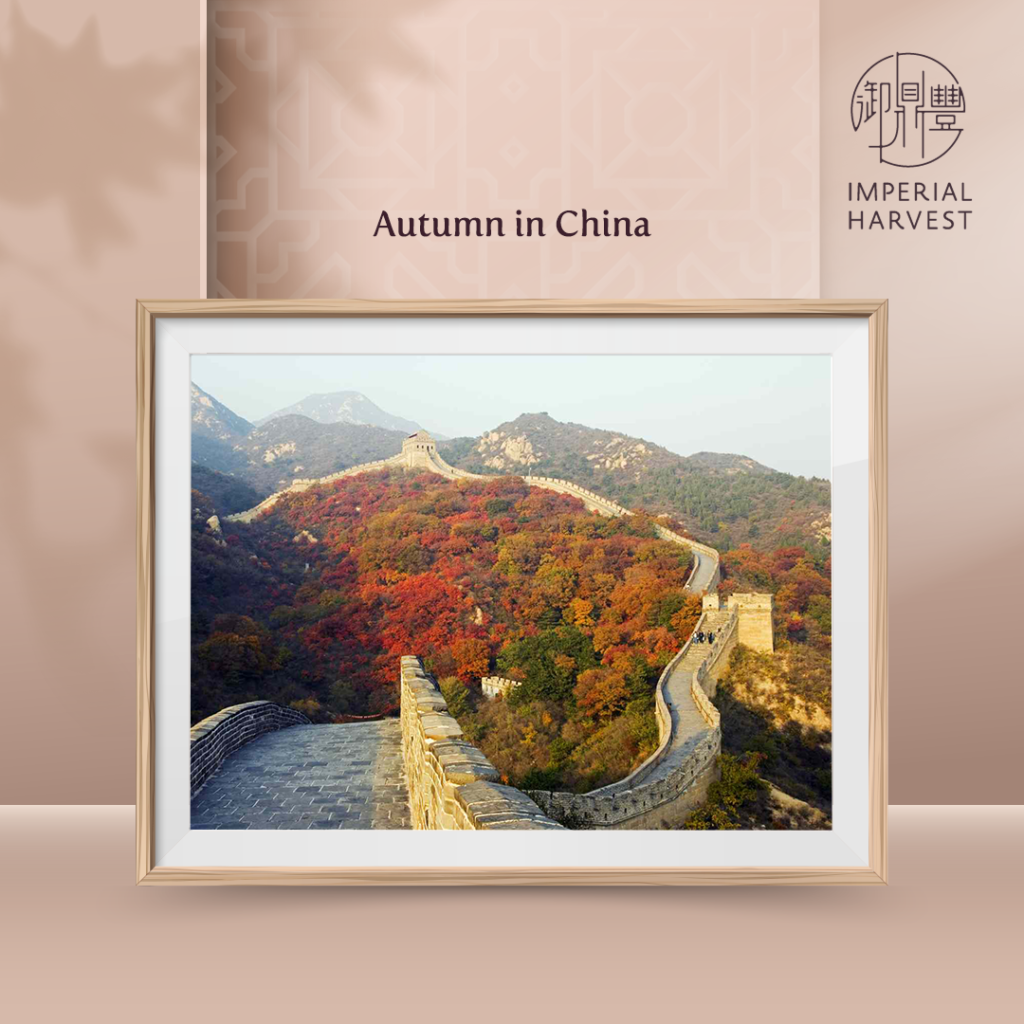
This year, this auspicious occasion begins on 8 August, with its onset being celebrated with unparalleled fervour and anticipation.
Cultural Reverence of Liqiu
For generations, the people of ancient China have revered Liqiu as a turning point in the harmonious symphony of seasons. Among the numerous agricultural communities across Chinese dynastic history, Liqiu is synonymous with hope and prosperity. As the harvest season approaches, it beckons the culmination of the hard work sown in spring and nurtured through summer.
Beyond its agricultural significance, Liqiu holds a profound cultural impact that resonated with the people of China. As such, ancient traditions and customs are deeply woven into the fabric of this seasonal transition. In many regions, communities come together to celebrate the blessings of the land, expressing gratitude through vibrant festivals and ceremonies. Colourful processions, traditional dances, and religious activities — such as the Qiu She Autumn Prayers, Autumn Fairs and partaking in seasonal food — create a joyous atmosphere that binds communities and generations in a shared sense of belonging.
Imperial Traditions of Liqiu
For the many farmers whose livelihoods depended heavily on the flourishing of their crops, Liqiu’s arrival was met with splendour and anticipation. Ancestral worship took centre stage, and the earth itself bore witness to the gracious sacrifices of livestock, all in deep gratitude for the bountiful yield that nature had bestowed upon them.
This tradition echoed through countless generations of emperors, each embracing Li Qiu with unwavering significance, in respectful tribute to the arrival and success of the autumn’s harvest.
Embracing the Abundance of Li Qiu with Imperial Harvest
With the arrival of Liqiu this August, Imperial Harvest pays homage to the sacred significance of crop harvesting in the tapestry of the Chinese calendar. Just as dedicated farmers tirelessly reap the fruits of their labour in crop fields, our blessed clients reap the rewards from the previous preparations over the year.
At Imperial Harvest, our pursuit of excellence knows no bounds. Our jadeite treasures, sourced from only the most exceptional jadeite boulders, embody the very essence of rarity and exclusivity.
Our craftsmen breathe life into each exquisite jadeite treasure with unwavering precision and skill, meticulously carved from the heart of the finest raw jadeite boulders. Imperial Feng Shui energies within these cores resonate at their densest and most intense, infusing our creations with profound strength and auspicious blessings. It is in this meticulous selection of Imperial Harvest-grade jadeite that Imperial Harvest empowers our cherished clients to embrace their aspirations with unwavering confidence and a profound peace of mind.
Imperial Harvest Bliss of Harvest Collection
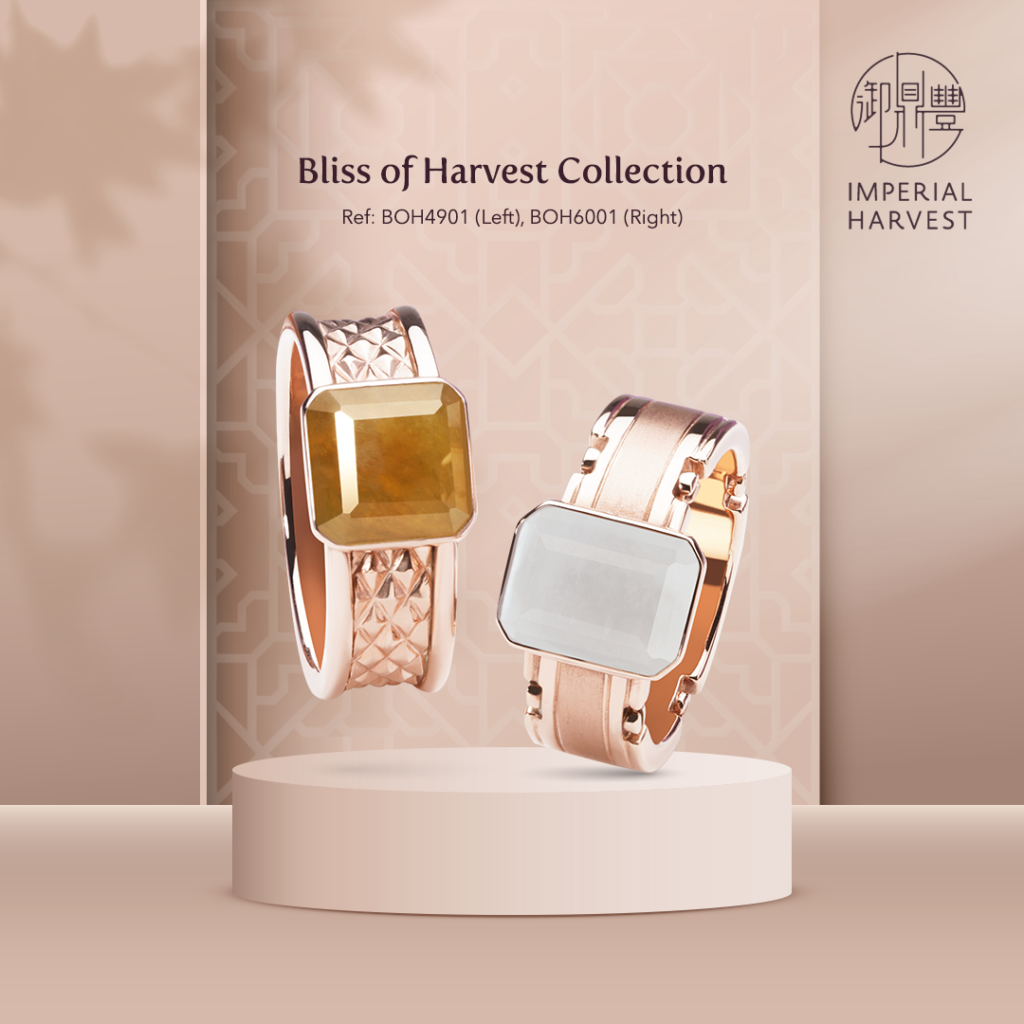
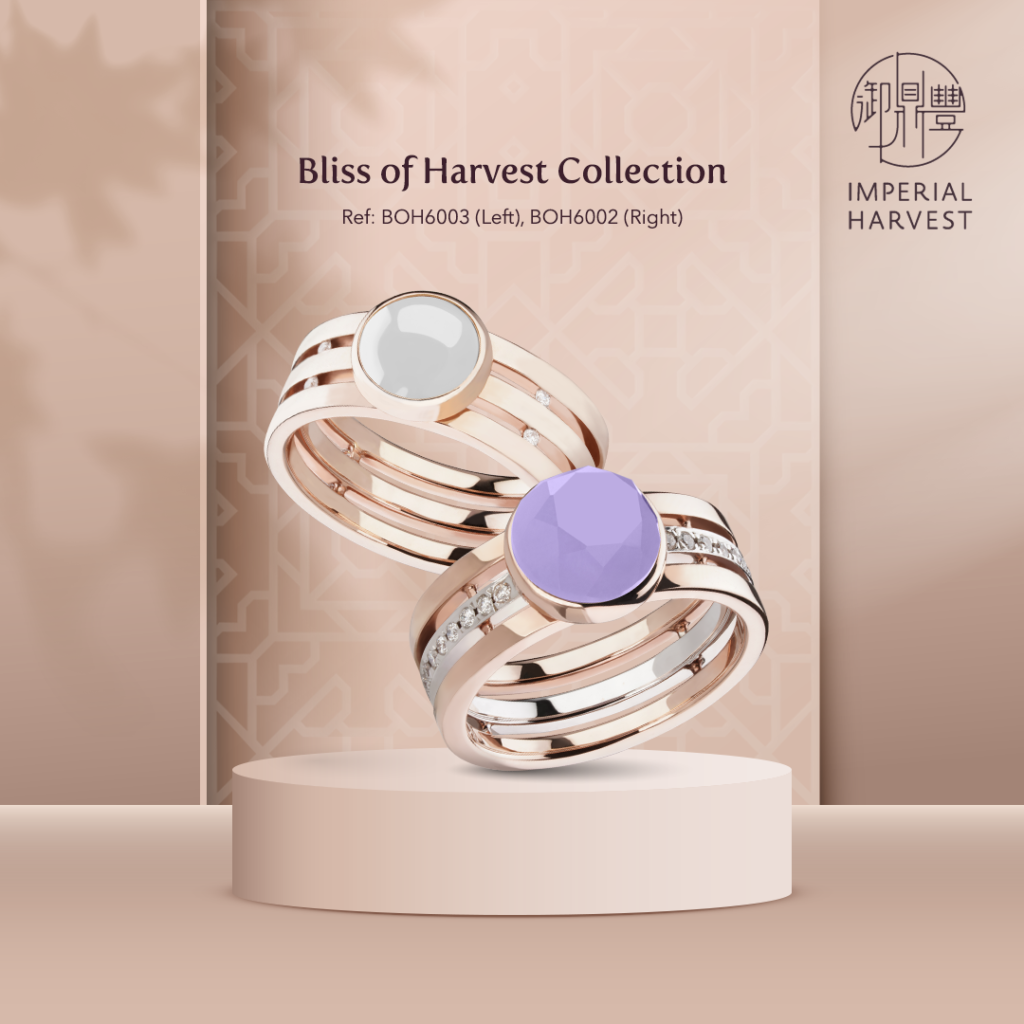
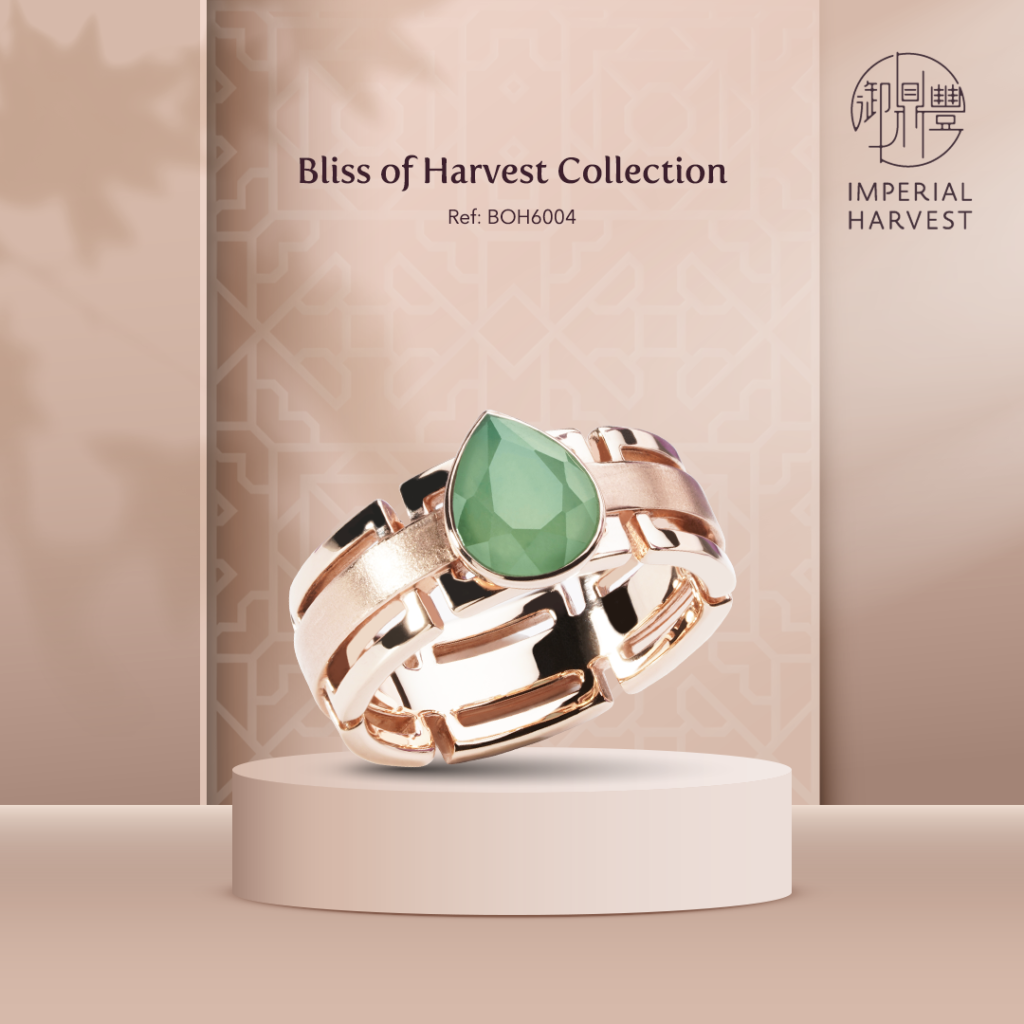
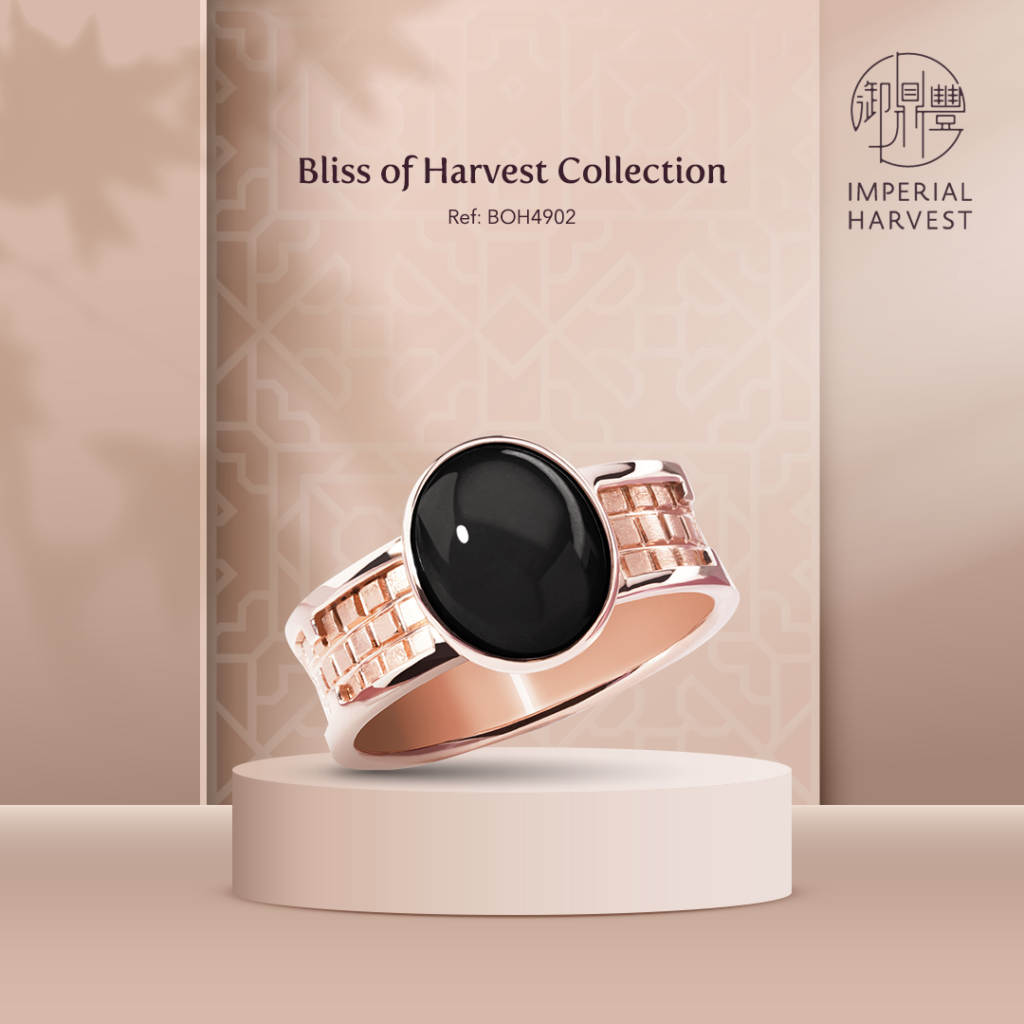
Drawing inspiration from the majestic and awe-inspiring Temple of Heaven, coupled with its rich historical significance in the practice of Imperial Feng Shui, Master David has envisioned the exquisite Bliss of Harvest collection. This exceptional collection beautifully encapsulates the essence of the Temple of Heaven, melding time-honoured Imperial Feng Shui principles with centuries of cultural importance, resulting in a statement of unparalleled contemporary elegance and sophistication.
Crafted with the utmost care, the Bliss of Harvest: Temple of Heaven collection is meticulously fashioned from a proprietary blend of precious metals that culminates in the creation of an exquisite 18-karat rose gold ensemble that symbolises the sacred elements of Heaven, Earth, and Humanity. The collection references the harmonious balance of yin and yang, featuring an eye-catching contrast of matte and mirror finishes.
Embodying the rich heritage and contemporary spirit of the Temple of Heaven, the Imperial Harvest Bliss of Harvest collection brings classic Imperial Feng Shui into the modern day, showcasing an elegant statement of the historic links between Imperial Harvest and our imperial Feng Shui traditions.
Learn more about the Imperial Harvest Bliss of Harvest Collection
Imperial Harvest QING Collection
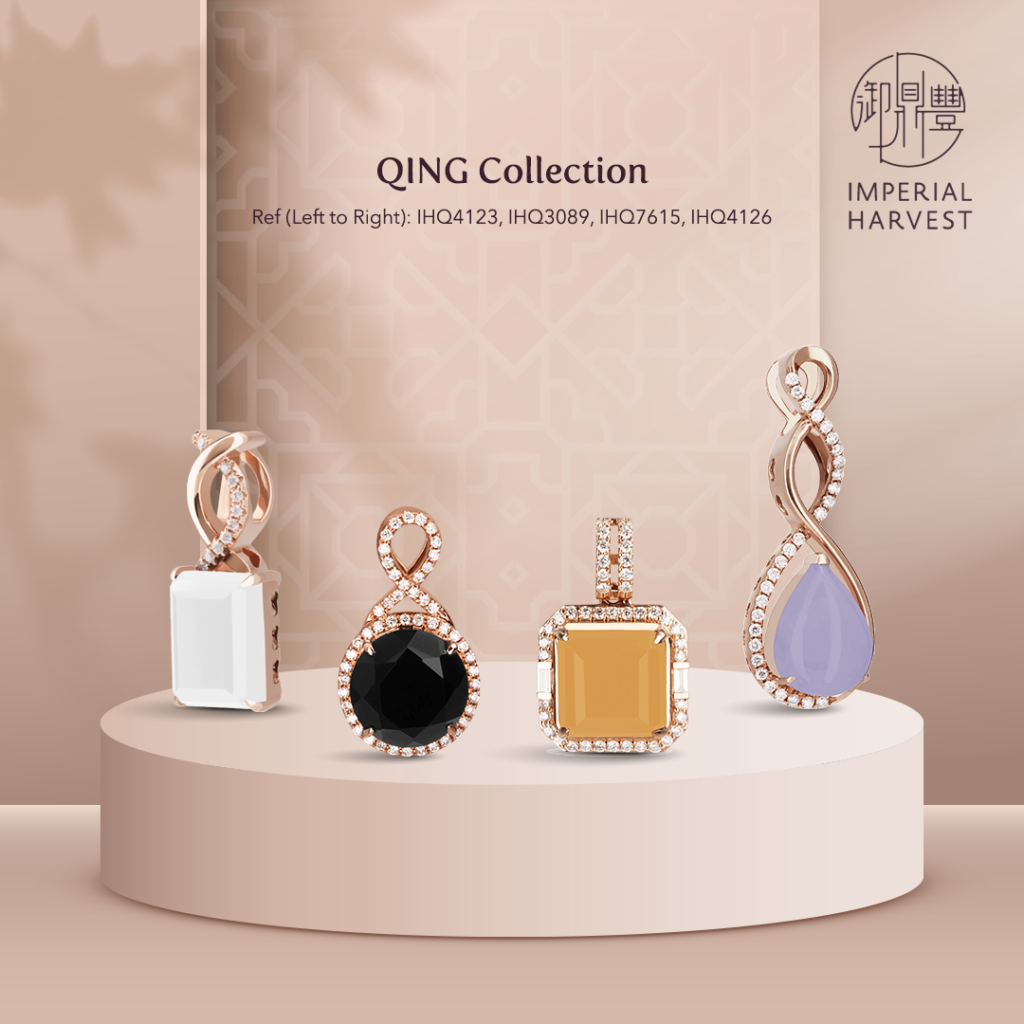
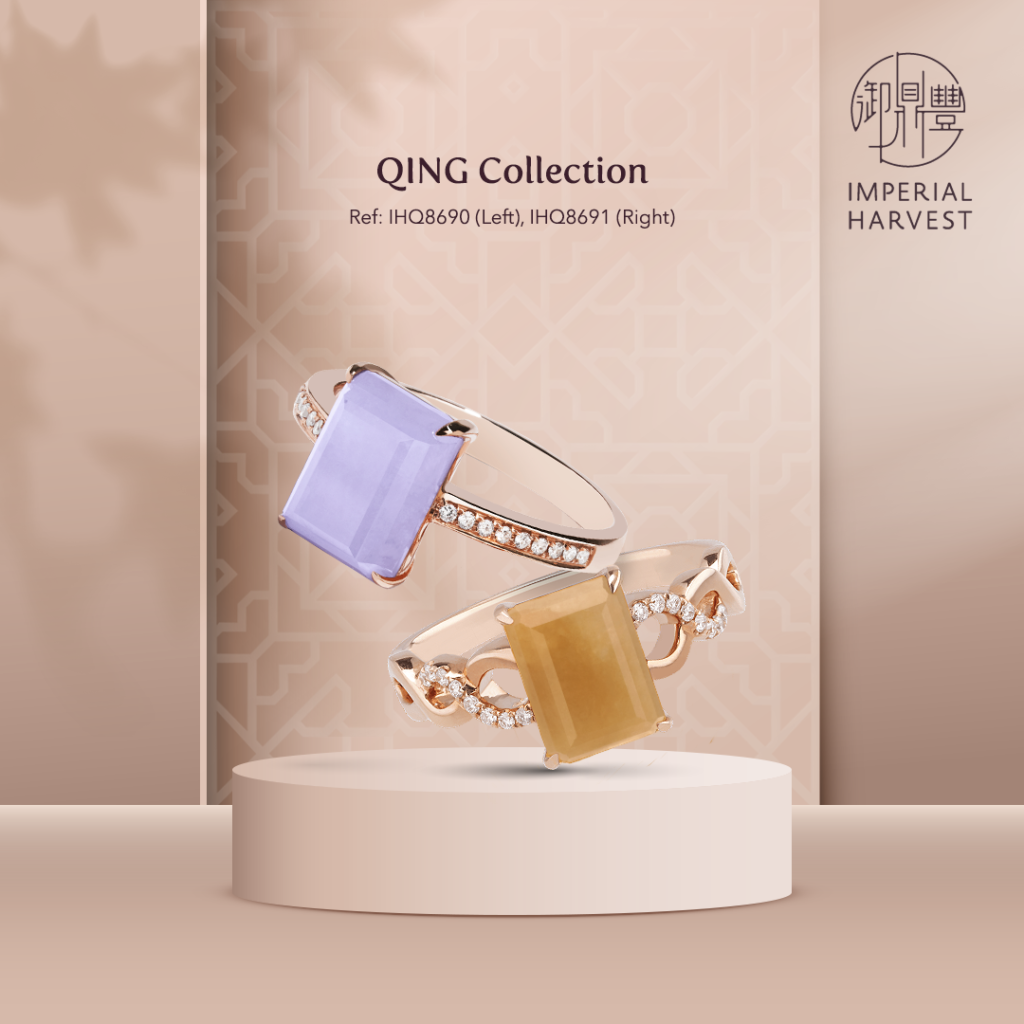
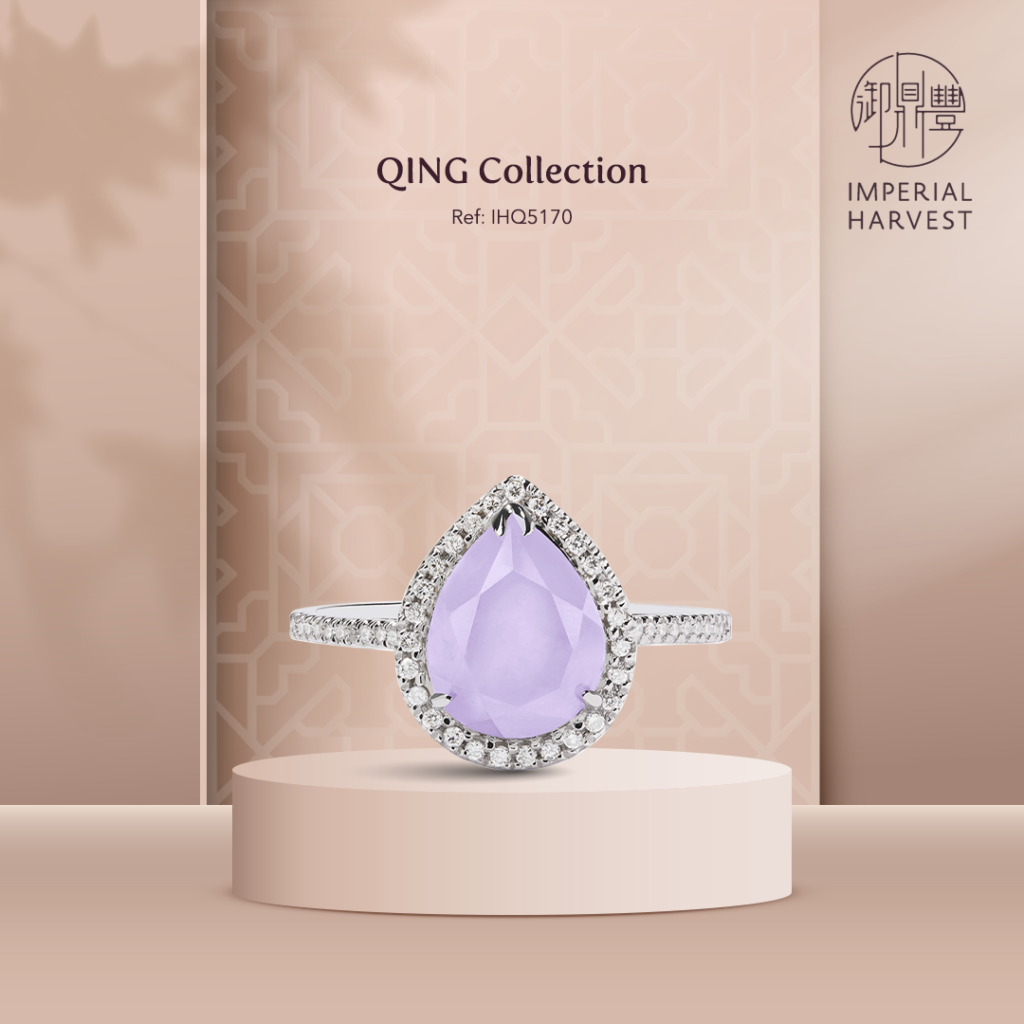
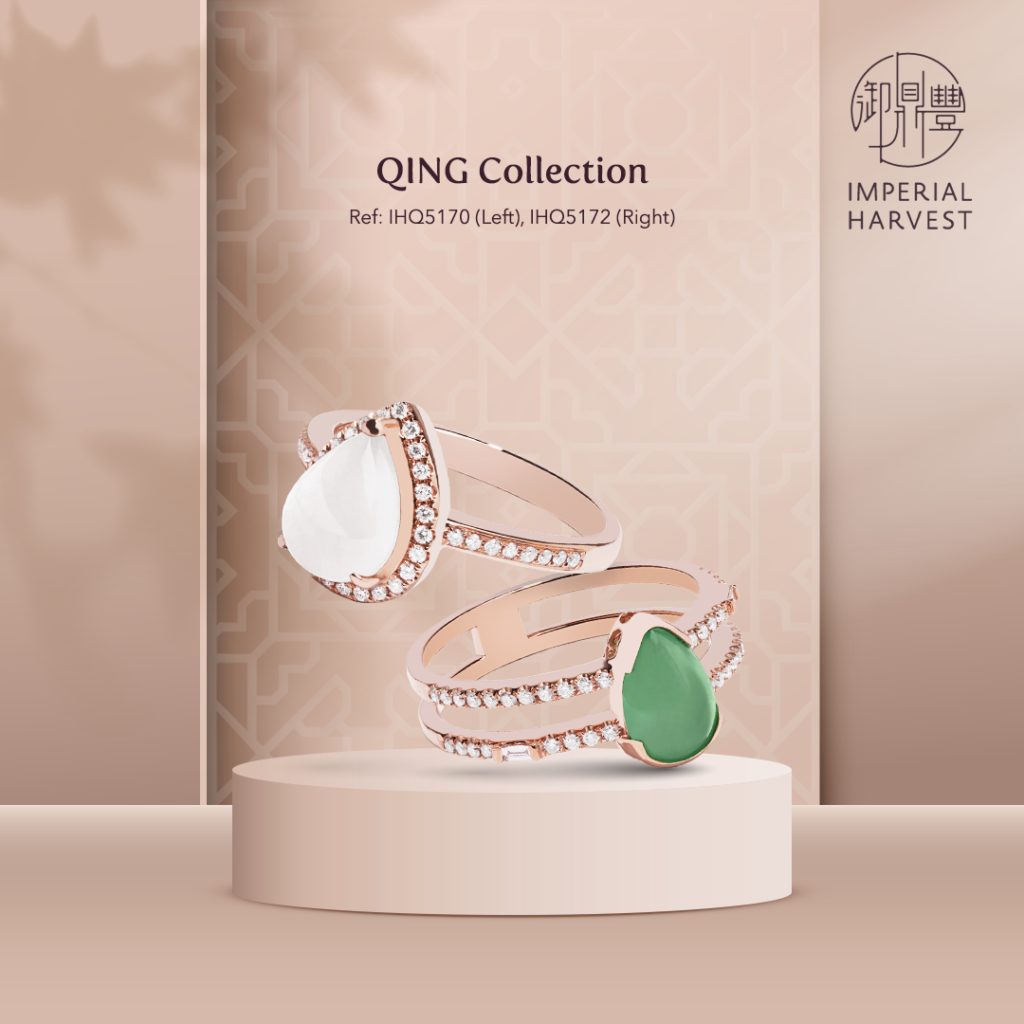
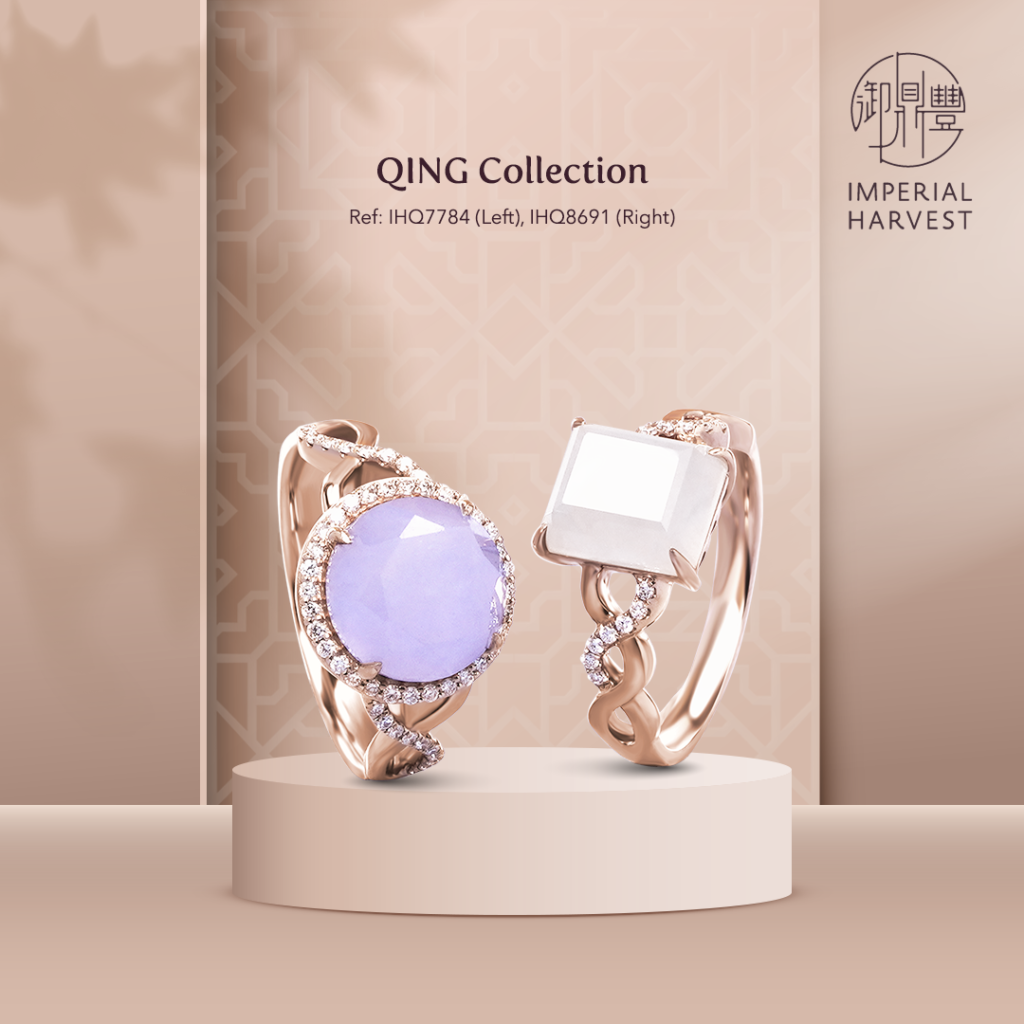
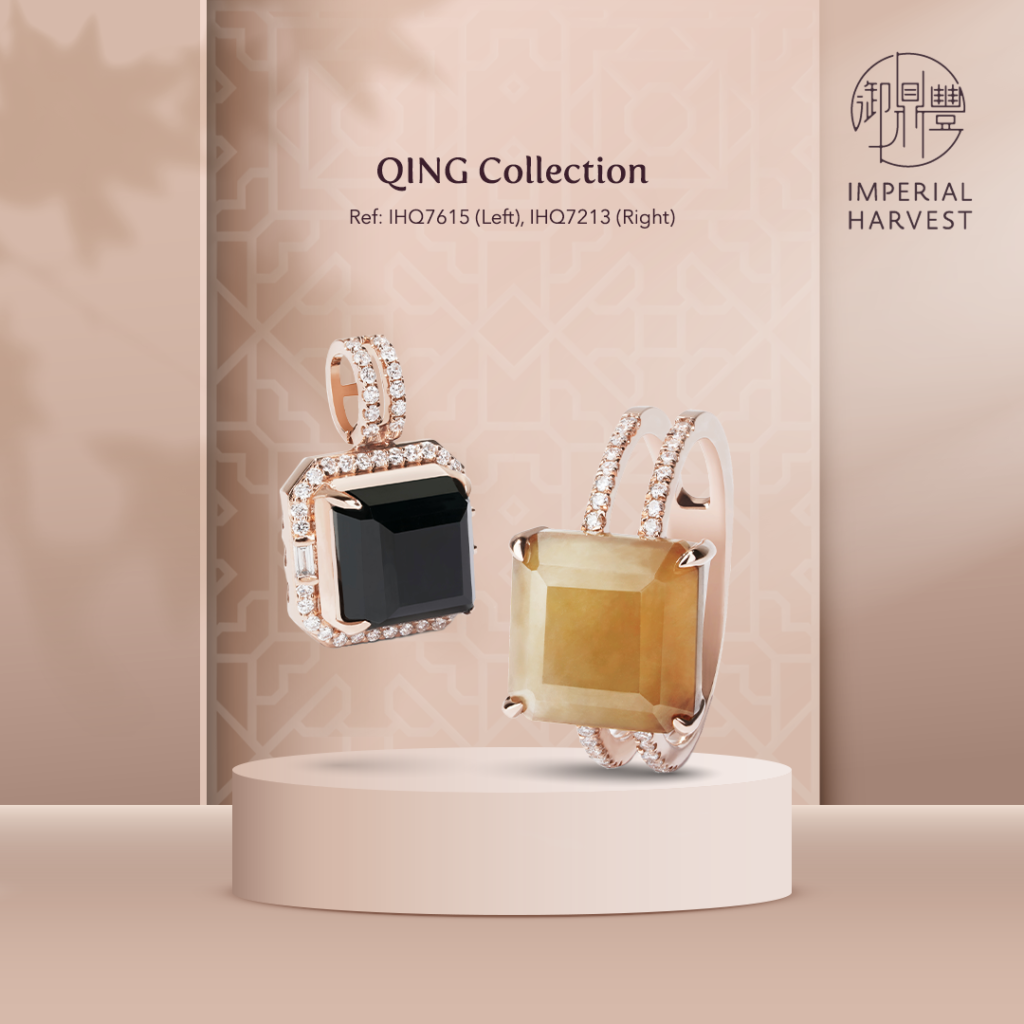
Emperor Qian Long’s unwavering support and encouragement marked a turning point for the opulent imperial jewellery of the Qing dynasty, embracing the grace and elegance of the Qing dynasty while melding heritage with contemporary allure.
This collection — crafted from precious gold, lustrous jadeite, and exquisite diamonds — is a testament to this innovating era in Chinese history. Brilliantly-cut diamonds frame the crowning jewel of the collection: an exquisitely cut jadeite cabochon, manually polished to accentuate the gemstone’s innate brilliance.
Learn more about the Imperial Harvest QING Collection
Celebrating Liqiu at Imperial Harvest
Liqiu’s arrival this August heralds the beginning of an extraordinary season of abundance. Imperial Harvest, in its unwavering commitment to excellence, mirrors the timeless rhythm of the autumn season, crafting fine jadeite treasures imbued with the essence of Liqiu’s opulence and promise
Imperial Harvest’s expert consultants are always on hand to guide you on your journey and provide you with insights to help you realise your fullest potential. Book a complimentary consultation today or contact us at +65 92301640.
We are located at
For prospective clients:Imperial Harvest402 Orchard Road
Delfi Orchard #02-07/08
Singapore 238876 For existing clients:Imperial Harvest Prestige
402 Orchard Road
Delfi Orchard #03-24/25
Singapore 238876
Most Read Articles
Get to read our life changing articles and get inspired.
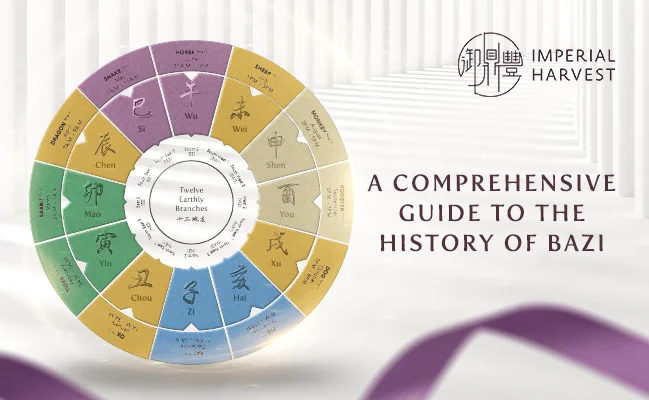
A Comprehensive Guide to the History of Bazi (八字)
Estimated Reading Time: 5 mins Bazi (八字) is often mistakenly assumed as the Chinese counterpart of western Astrology. The similarities between both systems lie in their utilisation of birth dates and time in their calculations, and the ability to be read from a tabulated chart. Where Astrology may take into account the positions of different […]
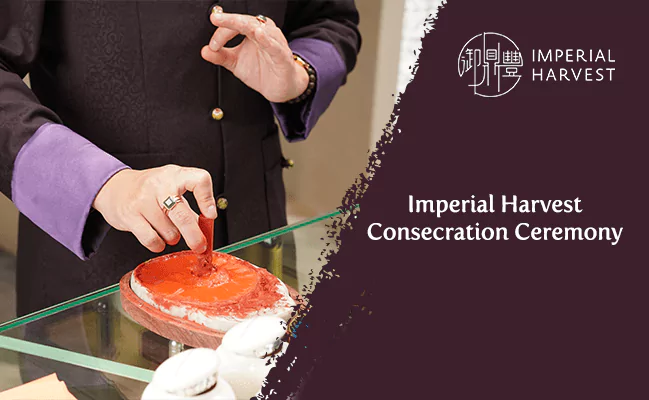
Imperial Harvest Consecration Ceremony
Estimated Reading Time: 5 mins At Imperial Harvest, each earthly treasure undergoes a series of consecration rites performed by Master David, before it is bestowed upon its blessed owner. Every aspect of these sacred Chinese anointing rituals is carefully examined and accurately represented in Master David’s blessings, reflecting Imperial Harvest’s deep respect for these esteemed […]
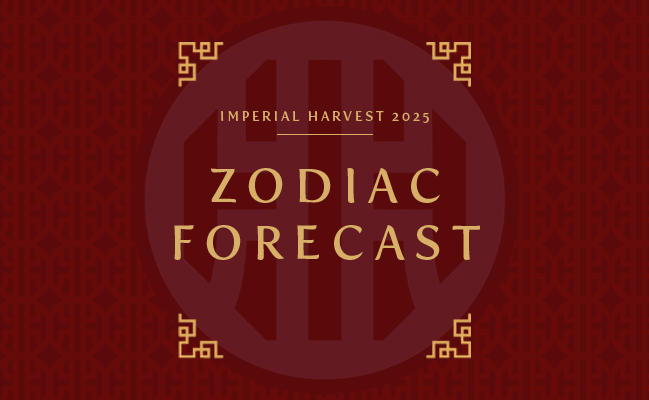
Imperial Harvest 2025 Zodiac Forecast
Estimated Reading Time: 7 mins The Year of the Wood Snake in 2025 brings a dynamic period of growth, transformation, and new beginnings. With its ambitious qualities, the Wood Snake’s influence offers unique opportunities for those who seek progress and renewal. Drawing from the time-honoured principles of Imperial Feng Shui, the Imperial Harvest 2025 Zodiac […]

